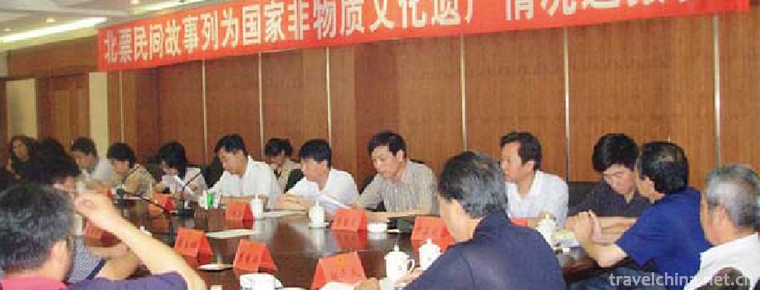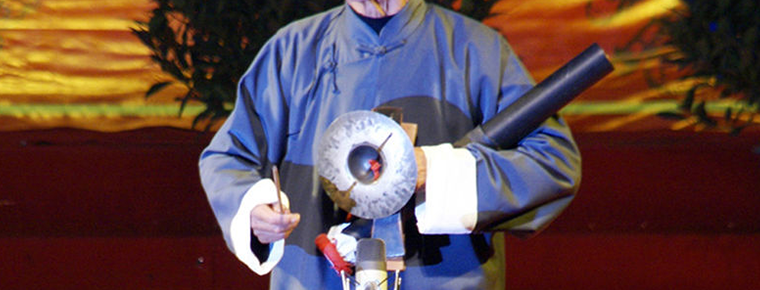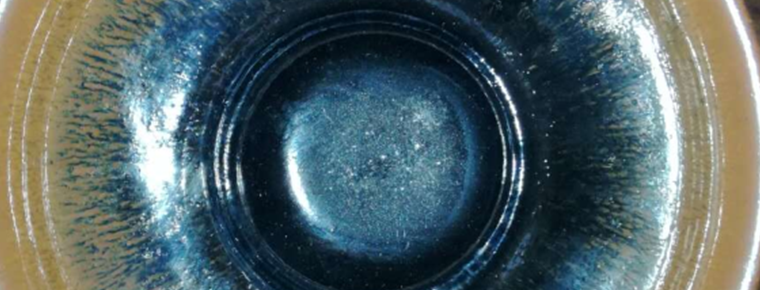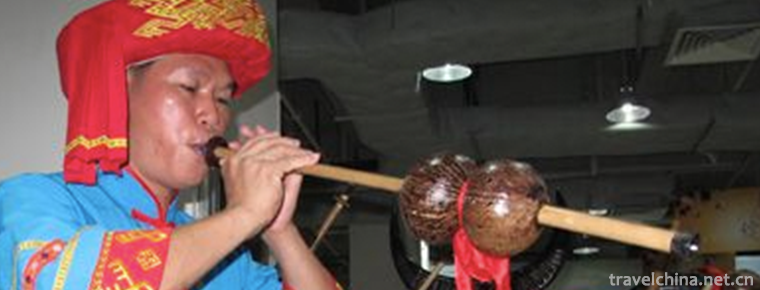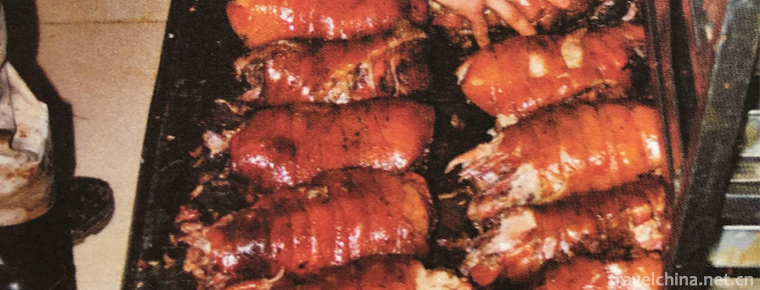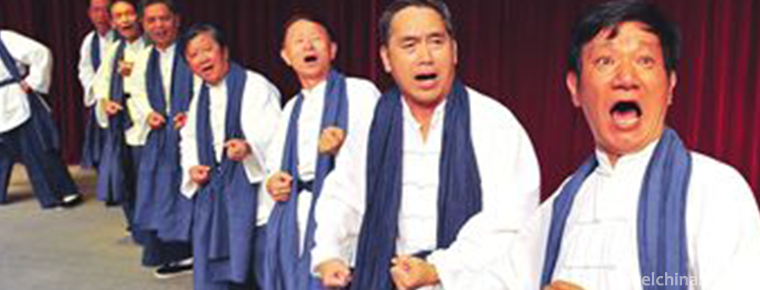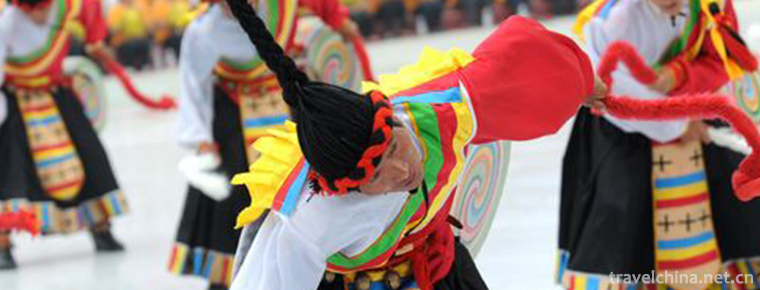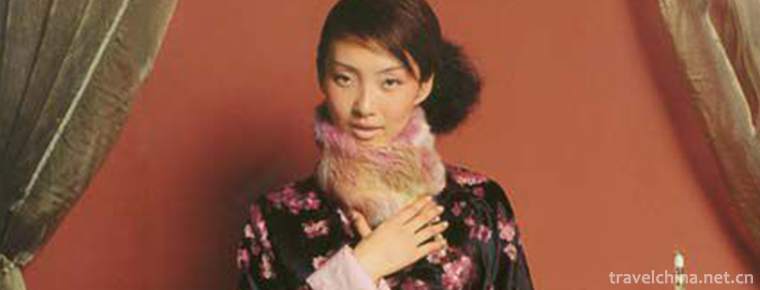Chen Clan Ancestral Hall
Chen's academies, commonly known as Chen Clan Academy, are located on the seven road of Zhongshan, Guangzhou. Chen Academy was established in fourteen years (1888) of Qing Guangxu, and completed in twenty years (1894). Chen's Academy is the largest, ornately decorated and well-preserved traditional Lingnan ancestral hall-style building in Guangdong Province. It is known as the "Pearl of Lingnan Architectural Art". It concentrates the decorative art of Guangdong folk architecture. It skillfully uses the decorative art of wood carving, brick carving, stone carving, gray sculpture, pottery sculpture, copper-iron casting and colored painting, and is a people. The bright hall of decorative art. There are as many as 284 pieces of architectural sculpture ornaments in the Chen ancestral temple, including 58 pieces of stone carving, 57 pieces of wood carving, 57 pieces of grey sculpture, 58 pieces of pottery, 41 pieces of brick carving, 13 pieces of copper and iron casting and murals. Chen Clan Academy is a national key cultural relic protection unit.
Chen Clan Academy is also the seat of the Guangdong Folk Craft Museum. It is a national first-class Museum. Apart from the exhibitions of Guangdong Traditional Carving Art, Guangdong Ivory Carving Art, Guangdong Embroidery, Centennial Chen Academy, Old Guangzhou Home, etc. It also exhibits a variety of Guangdong folk arts and crafts, such as Shiwan Art Pottery, Guangzhou Gold-colored Porcelain, Chaozhou Gold-lacquered Wood Carving, Guangzhou Embroidery, set of colored etched glass and so on.
Since the 21st century, Chen's Academy has twice been selected as the "Eight Scenic Spots of Yangcheng in the New Century" in the name of "Ancient Ancestral Hall" and is known as "Guangzhou Cultural Card". It has become the most cultural and artistic museum and famous tourist attraction in Lingnan area.
In April 1888, 48 local gentry and celebrities of the Chen clan in Guangdong, such as Chen Changchao, Chen Zongxun, Chen Lanbin and Chen Botao, sent letters to the Chen clans in Guangdong Province, including "The Construction of Chen's Academy in the Counties of Guangdong Province" and "The Constitution for the Construction of Chen's Academy in the Negotiation of Chen's Academy". The contents of the letters were to invite Chen clans from all over the province to send their members to the province. The city of Guangzhou raised funds to discuss the construction of Chen's Academy.
Chen, who advocated the construction of Chen's Academy, included some famous Cantonese gentlemen, such as Chen Botao of Dongguan, a famous diplomat of late Qing Dynasty, who served as Minister of state affairs and former premier of the Qing government.
The Chenjia Academy is a typical example of Lingnan's architectural art, including the front yard, the West yard, the east yard and the back yard, covering an area of more than 15,000 square meters.
Walking into the academy, walking in the simple and elegant courtyard, across the straight and beautiful corridor, soft and beautiful music of silk bamboo comes to the ears, visitors are all amazed at the artistic creation of Lingnan people.
The solemn and magnificent shape, vivid and smooth lines, scattered and rigorous structure, elegant and beautiful combination and rich Lingnan local characteristics of decorative art, give people unlimited reverie and aesthetic enjoyment.
As early as the 1920s and 1930s, Germany, Britain, Japan and other countries in the architectural monographs "World Architectural Art" and "Architecture of Southern China," she was praised as a model of architecture in southern China.
In 1959, Guo Moruo wrote a poem in the eyes of an archaeologist and cultural relic connoisseur, praising: "Sky workers can be replaced, artificial days are inferior, as expected to create the world, better than ten years to read books."
Chen's Academy is the largest, ornately decorated and well-preserved traditional Lingnan ancestral hall building in Guangdong. It covers an area of 15,000 square meters, and the main building area is 6,400 square meters. It is composed of 19 single buildings.
Chen's Academy concentrates on the decorative art of Guangdong folk architecture, skillfully using wood carving, brick carving, stone carving, gray sculpture, pottery, copper and iron casting and painting and other decorative arts. It has a wide range of subjects, vivid shapes, rich colors and exquisite craftsmanship. It is a splendid hall of folk decorative art.
The Chen family ancestral hall in Guangzhou, located on Zhongshan Seven Road, also known as Chen's Academy, is well-known in Shenzhou. It is the most distinctive art complex in Guangdong. It is well-arranged, well-decorated and magnificent. It was opened as Guangdong Museum of Folk Art in 1959.
The ancestral temple of the Chen family was built between the 16th and 20th years of the Guangxu reign of the Qing Dynasty (1890-1894). At that time, Guangzhou's surname Chen was not only the majority but also the most important. So they raised money to build this Chen Clan temple. This is a "wide five, deep three into", an area of more than 13,200 square meters, before and after the three rows of more than 80 meters long hall, the middle and the left and right sides run through four corridors, composed of six courtyards.
Chen's academies, commonly known as Chen Clan Academy, are located on the seven road of Zhongshan, Guangzhou.
Chen's Academy was founded in 1890 in the 16th year of Guangxu in the Qing Dynasty. It was completed in 1894. It was a ancestral temple and academy jointly funded by Chen's family in 72 counties of Guangdong.
Chen ancestral hall is the most distinctive art building complex in Guangdong. It is well-arranged, well-decorated and magnificent, and it is the key protection unit of cultural relics in China.
Its establishment mainly provides temporary residence for the Chen clan's children who participated in the donation to the provincial cities for preparing for the imperial examination, appointment, paying taxes, litigation and other matters.
In return for the donation, the Chen clans could place their ancestral tablets in the shrine of the Chen Academy.
Since the 21st century, Chen's Academy has twice been selected as the "Eight Scenic Spots of Yangcheng in the New Century" in the name of "Ancient Ancestral Hall" and is known as "Guangzhou Cultural Card". It has become the most cultural and artistic museum and famous tourist attraction in Lingnan area.















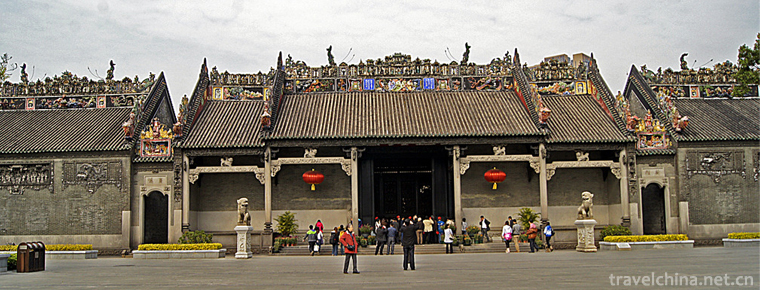
-
Nanning Zoo
Nanning Zoo, located at 73 East University Road, Nanning City, was built in 1973. It was officially opened to the outside world in 1975 with a total area of 39.1 hectares. It receives more than 1 mill.
Views: 172 Time 2018-12-27 -
Beipiao Folk Stories
Beipiao Folklore is a local folk literature in Liaoning Province. It includes eight categories: folklore, character legend, fantasy story, life story, animal and plant story.
Views: 169 Time 2019-04-04 -
Bouyei Leyou
Le You and Le Lang are Buyi oboe gas song instruments. They resemble suona, bowl-less, insect whistle playing, bright and sweet timbre. It can be used for Solo or singing accompaniment.
Views: 165 Time 2019-04-04 -
Hunan fishing drum
Fishing drum is also called tube and bamboo piano. Song Dynasty has emerged, is a popular traditional musical instrument in Hubei, Hunan, Shandong, Guangxi and other areas, often used in opera perform.
Views: 177 Time 2019-05-03 -
Burning Technology of Building Kiln and Building Calendula
Kiln building Calendula firing technology, the local traditional skills of Nanping City, Fujian Province, one of the national intangible cultural heritage..
Views: 288 Time 2019-05-05 -
Bamboo and Wood Instrument Music of Li Nationality
The traditional instrumental music of Li Nationality is based on abundant bamboo and wood resources, including solo music, ensemble music, song and dance music, sacrificial music and eight kinds of mu.
Views: 137 Time 2019-05-13 -
Traditional Processing Techniques of Liuweizhai Sauced Meat
Liuweizhai is a well-known Chinese brand which was founded in 1738 in the three years of Qianlong in Qing Dynasty. Its sauced meat, as a traditional food in China and a famous food in the Three Jin Dy.
Views: 142 Time 2019-05-14 -
Wharf song
The dock number is a traditional folk song in Shanghai. Singing in docks, cargo yards, loading and unloading, lifting, push and pull and other labor occasions. The main singing methods of wharf number.
Views: 96 Time 2019-05-16 -
Guozhuo Dance in Shannanchang
Shannanchang Guozhuo Dance is a kind of waist drum, which originated in Dabu (now Jiacha) area. Legend has it that in the mid-eighth century, with the help of Buddhist masters such as lotus and peanut.
Views: 163 Time 2019-06-13 -
Chinese Fashion Making Skills
Chinese style clothing (dragon and Phoenix cheongsam) originated from the late Qing and Qianlong dynasties, and is the inheritor of the Shanghai style cheongsam. Hengsheng's suit, which originated in .
Views: 174 Time 2019-08-03 -
China Youth University of Political Studies
China Youth University for Political Science (China Youth University of Political Studies) is located in Beijing. It is the state-level "Communist Youth League Central Research Center for the the.
Views: 93 Time 2019-12-25 -
Four famous Chinese embroidery
Suzhou embroidery is famous for its fine stitches, elegant colors and fine embroidery. It has the characteristics of flat, light, even, harmonious, fine and dense. The theme is mainly about small animals. Such as "cat play", "wind through flowers",.
Views: 316 Time 2020-12-12

